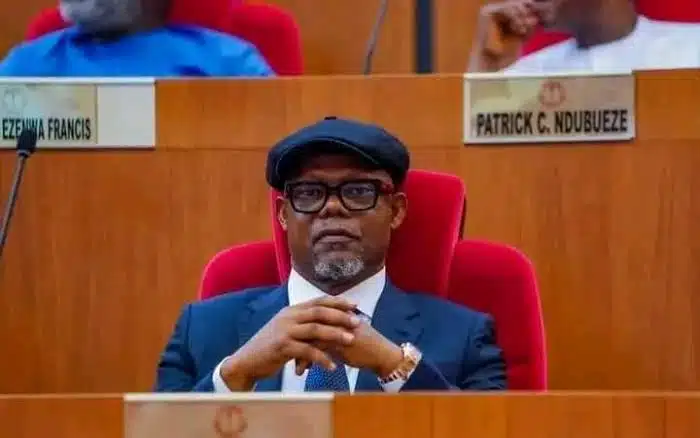Utomi Faults Tinubu’s Policies, Launches Opposition Shadow Cabinet

In a bold move to reshape Nigeria’s political discourse, Professor Pat Utomi, a renowned political economist, has unveiled a shadow cabinet under the ‘Big Tent’ coalition to provide expert-driven policy alternatives to the administration of President Bola Ahmed Tinubu.
Speaking in Abuja after a two-day strategy retreat, Utomi said the shadow cabinet is not designed to compete with the ruling All Progressives Congress (APC) but to offer credible critiques and strategic policy recommendations. The initiative, he said, is rooted in democratic principles that call for informed public debate and accountability.
“The progress of any government is to ensure the welfare of the people,” Utomi said. “There must be alternative views and reviews to help government move in the right direction.”
Among those named to the shadow cabinet are Nana Kazaure (Information), Riwang Pam (Security), Nike Omola (Women and Gender Development), and Peter Agada (Infrastructure). The group is expected to monitor government policy across sectors and propose reforms grounded in research, data, and public interest.
Utomi criticized Nigeria’s current governance model, lamenting a lack of political will and coherent national strategy. He pointed to the controversial Lagos-Calabar coastal highway project as an example of flawed, unilateral policymaking.
“We need to stop doing government by impulse,” he said. “The agricultural sector can’t thrive on hoes and cutlasses. We must embrace technology and strategy.”
He also called for urgent reform of Nigeria’s security architecture, particularly the decentralization of policing through state police systems.
DSS Moves to Block Shadow Government
Utomi’s initiative has not gone unnoticed by the authorities. In May, Nigeria’s Department of State Services (DSS) filed a suit at the Federal High Court seeking to declare the shadow cabinet unconstitutional and to restrain Utomi from making public statements or organizing rallies.
According to court filings, the DSS alleged that the Big Tent shadow cabinet could incite discontent similar to the 2020 #EndSARS protests and warned of potential public disorder if not curtailed.
Utomi, who was abroad at the time but returned to Nigeria in early June, has rejected the accusations and decried what he describes as state efforts to silence dissent.
“You cannot build a democracy by criminalizing opposition,” he said, hinting that if the pressure continues, he may be forced to consider leaving the country.
Despite legal and political challenges, Utomi insists the shadow cabinet will continue its work of holding the government accountable and offering Nigerians a credible alternative through the African Democratic Congress (ADC), which he described as a coalition vehicle for national transformation.
“We’re not here to undermine the government. We’re here to strengthen democracy and ensure the people’s voices are heard,” he said.




